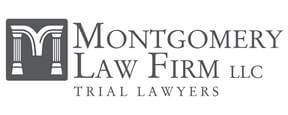The most common first step taken toward resolving a health issue is visiting a medical facility to obtain a diagnosis. When a health care practitioner’s negligence causes an error or a misdiagnosis, however, a patient could suffer devastating harm.
Examining a patient generally requires a medical professional to ask several questions and obtain detailed information regarding the symptoms. New patients may require a longer examination so that a practitioner can construct a thorough understanding of a patient’s previous medical history. A rushed or lax assessment could lead to an incorrect diagnosis.
Inadequate assessments contribute to incorrect diagnoses
A malpractice insurer conducted a study on claims filed against nurses and physician assistants. The study found that nearly 50% of the practitioners faced lawsuits alleging inadequate health assessments.
As reported by Business Insurance, a lack of a proper medical assessment resulted in a delayed or a failed diagnosis. The reasons for a misdiagnosis included the practitioner’s skills, documentation problems or poor communication.
An improper diagnosis may cause a practitioner to prescribe the wrong medication or perform an unnecessary treatment. When a patient suffers bodily harm or injury as a result, he or she may require further medical attention. Visiting another practitioner may then serve to uncover any errors or mistakes made by the previous one.
Communication problems result in poor examinations
A lack of communication between a patient and his or her medical practitioner could result in a faulty examination. According to the study, 22% of claims filed against physician assistants and 25% of claims against nurse practitioners noted that they failed to adequately communicate a patient’s condition. Allegedly, some health care practitioners did not read a patient’s medical report.
While patients may prefer to forgo a series of tests, a medical practitioner owes a duty of care to order all necessary tests and assessments before diagnosing an illness or condition. Failing to advise a patient regarding the importance of a testing process may result in a lackluster physical examination and a subsequent misdiagnosis. A legal action may provide a harmed patient with compensation to recover damages from unnecessary treatment or procedures.
